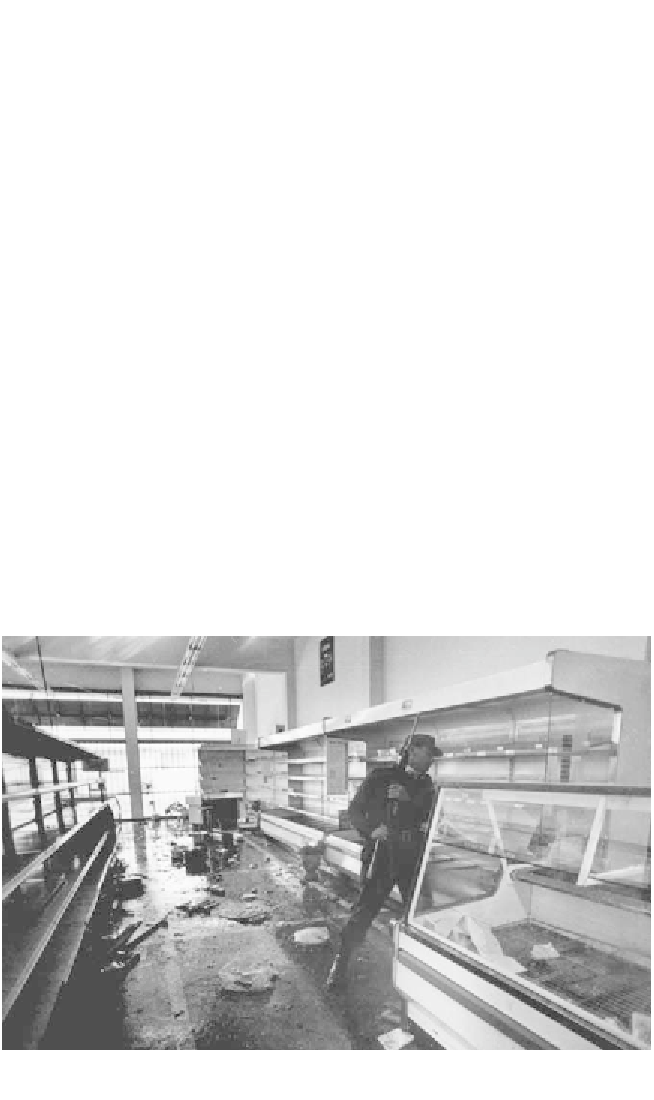Travel Reference
In-Depth Information
Rioja. Despite flirting with the “painted faces” during the campaign,
Menem had human rights credentials: He had been imprisoned dur-
ing the Dirty War. Menem ran a campaign that hewed closely to
classic Peronist populism. Though the son of Syrian immigrants, he
adopted the Creole persona of the interior provinces and equaled
Perón himself in manipulating political symbolism. He drank
mate,
wore long sideburns in the caudillo style of Juan Manuel de Rosas,
and vowed to bring back Rosas's remains from England for reburial.
As governor, he had enlarged the state bureaucracy of La Rioja and
undertaken many public programs with deficit spending. His lead in
the polls cooled the ardor of many private investors, who expected
Menem the Peronist to raise wages, spend lavishly, and retain state
control of the economy.
The 1989 presidential elections gave Menem a plurality with 47
percent of the votes. The Constitution of 1853 stipulated that the
president-elect wait eight months between the May elections and his
December inauguration, but the quickening economic crisis rendered
the outgoing president powerless. In July 1989, inflation was run-
ning at 3,000 percent. In the parlance of economists, Argentina had
achieved “hyperinflation.” Workers called for general strikes, and mobs
ransacked grocery stores throughout the country in what came to be
known as the IMF riots. The violence left more than 300 food stores
A looted supermarket in Rosario during the IMF riots in 1989
(Archivo Página 12)



